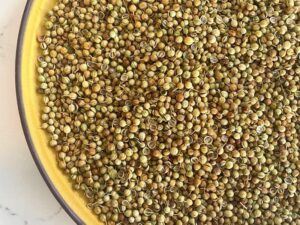What You Need to Know About NPK Fertilisers

Have you heard a lot about NPK fertilisers and are wondering whether you should be using this for your plants? If you are new to the world of growing, there are a lot of names and terms you have to get used to. In particular, fertiliser is not simply fertiliser. There are different types out there and you need to know the difference. Not all plants will require the same one. In particular, you are going to come across NPK fertilisers. Let’s take a closer look at what this is and everything you need to know.
What is an NPK Fertiliser?
First of all, let’s keep it simple. NPK stands for nitrogen, phosphorus and potassium. Thus, an NPK fertiliser is a product that contains these three nutrients. Indeed, they are very important if you want to grow healthy and strong plants. It has been found that these are some of the most important nutrients that most plants need and while they can present in the soil, this is often in the wrong amounts or not enough. Thus, a fertiliser can bring the balance your plants need to thrive.
Note that there are different NPK fertilisers available. Namely, they will contain a different ratio of nutrients. For instance, you can buy products that have a label stating 10-5-4. This means that the fertiliser offers 10 per cent nitrogen, five per cent phosphorus and four per cent potassium. You will need to work out the amount that your plants require.
Signs That Your Plants Need an NPK Fertiliser
Are there any signs that you should look out for that signify your plants need an NPK fertiliser? The answer is yes. There are going to be a few signs to look out and that indicates they need fertiliser containing nitrogen, phosphorus and potassium. You are going to notice that your plant is generally not appearing as healthy as it should look. This can include having weak stems, dropping or low-quality flowers and fruits and pale colours. There can also be discolouration on the leaves.
If you are in doubt, you can always test the soil to see the nutrients it contains. There are test kits that you can buy that are going to allow you to see the levels of individual nutrients. If you discover that it is low in nitrogen, phosphorus and potassium, this can call for a fertiliser to change this.
Now, let’s take a look at some of the benefits of using an NPK fertiliser so that you can consider this option.
Provides Plants with Vital Nutrients
It is important for plants to receive certain nutrients in order to grow. They get these nutrients from the soil around them. But, some soils will not contain the right ratio of nutrients for these plants for a variety of reasons. Perhaps they have never been present due to the type of soil it is or the soil has been worked for a number of years and the quality has decreased over time.
Acts Quickly for Good Growth
NPK fertilisers have been designed to act quickly. Namely, they are going to provide your plants with the key nutrients it needs to grow. You are likely to see quick results when you use an NPK fertiliser as it introduces these three nutrients into the soil. This is going to be faster than you will see with an organic fertiliser.
It is essential that you always read the instructions that are present on a product. Using more fertiliser does not equal better results. In fact, this can actually do damage to your plants. So, follow the instructions and use the product like the brand states in order to see the best results.
Protects Against Disease and Extreme Temperatures
The last thing you want is for your plants to become diseased. This can be enough to kill them and for you to have to start all over again. The best way to protect again disease is to ensure that your plants are as healthy and strong as they can be. They are going to be this way when they are receiving all of the nutrients they need. An NPK fertiliser can help to provide the key nutrients to the soil.
What’s more, when your plants are strong, they are going to be able to deal with extreme temperatures better. Plus, if you are watering them and using a fertiliser at the same time, this can help during hot spells and droughts.






